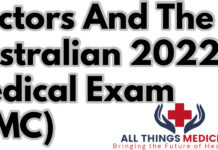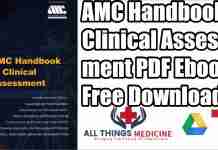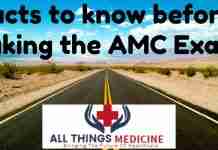AMC all about it in instants
AMC (Australian medical council exam) is the compulsory medical evaluation exam for IMGs to practice medicine in Australia. Along with that students have to pass their IELTS or TOEFL too which nowadays are compulsory for any abroad studies. The AMC test is composed of two parts both of which have to be passed to be a doctor in Australia.
1 CAT (Computer Adaptive Test)
2 Australian medical council clinical exam
Pre-Requisites
5 years MBBS (or an equivalent course)
1 year Internship
IELTS or TOEFL (7.0 overall)
Fee Structure
CAT ($1800-2100)
Clinical examination ($2400-2800)
All fees are subject to change yearly.
Exam Centres
Out of luck, Pakistanis. The AMC does not conduct any test anywhere in Pakistan. The nearest location being Dubai or Singapore for your dream though are available. The test tests your clinical knowledge, attitude and your social communication skills with the patients.
CAT (Computer Adaptive Test)
This test is exclusively comprised of multiple-choice questions (MCQs). Your computer will provide you a total of 150 questions out of which 120 are to be attempted compulsorily or you go home. The test time is 3.5 hours. Each question is provided with 4 wrong options and one correct.
Subjects
Community medicine
Medicine
Obstetrics and gynaecology
Paediatrics
Psychology
Surgery

The question distribution is as 35 from medicine, 25 from surgery, 15 from obs and gynae combined, 15 for paeds, 15 for psychology and 15 for medicine. All these questions are obligatory. They most usually contain diagrams, images, arts, ECGs, graphs and scanned pictures. This test is slightly different from your usual computer tests. It gets difficult as you proceed. When you answer a question right the next one is tougher and so on unless you answer wrong and vice versa. That’s where you get to know that the score doesn’t matter. What matters is how many you got right consistently. Those who answered right the tougher ones have the edge so we can say it tests your ability and in my view is a very sophisticated way to test a students knowledge. Once you pass this test you proceed to the next level i.e
The Clinical Examination
This part tests you clinics and your communication skills. You are shown 20 stations out of which 16 are for assessment and the other 4 are breaks in between. The 16 to be accessed are distributed among all subjects especially 3 for obs and gynae combined and 3 for paeds. The time for each station is 10 minutes ( 2 minutes for reading and 8 for the solution). The tasks given in each station are clinical i.e you are to take the history, interpret your diagnosis, ask the patient questions related to the condition and come up with a management plan. Each station may have one of the three cases
The patient may be real or identical (role playing)
Prescription pads or charts
Telephone cases in which you answer or make a call to someone they previously prepared.
Criterion for marking
This clinical part has critical steps and domains which constitute your scores and mostly 5-7 upon which you are observed and marked. The domains may include how you approach the patient, their physical examination, procedures involved, diagnosis, management and counseling of the patient like a professional. Each domain is rated on a scale of 0-7. Half being the passing score.
The obligatory passing score is required in 12 out of 16 stations and those 12 must include one from paeds and one from obs and gynae.
The test though might seem difficult after how I described it but it isn’t that much. Put your will in your faith and burn anything that stops your way. Hope you get your license for Australia. Drop your questions in the comments below.thats all about AMC all about it in instants. I have written a comparison article on AMC Vs PLAB (The ultimate comparison) you can take a look at that too. thankyou














After passing amc exam both part, how to secure employment offer? Those 12 months of supervised practice, do u get paid? How to get into residency after that?
Your past work experience and degree won’t get you a job.If you are new to the country, .You must involve yourself locally in any way possible and interact with the local community.If you stick to your own desi Community, it simply is harder to get your big break.Don’t be idle. Do any job and work anywhere to survive.Volunteer work is held in high regard so find time to volunteer anywhere.Spend lot of time in a cover letter and in addressing the selection criteria for each job you send it. Cut and paste won’t work.
It is hard as you have to start from scratch and it takes time but its worth it because you get to work in australia. Thats your residency. You do get paid for supervised practice after AMC 1. After AMC 2 you have to find a job yourself.
Thank you so much for the valuable information. I’d like to know what are the next steps after passing the exam? Will we be given the license rightaway or are there more training tasks to fullfill?
Yes after passing both AMC exams you will be given the license AHPRA. After which you have to find yourself a hospital.
what r the books one have to go through to pass CAT & where to find them?
can anyone practise as a GP after completing CAT or they need to pass both?thnx in advance
What’s the percentage of Students who pass this exam???Can you plz copmare it with PLAB???
Last year the percentage of aspirants who passed the MCQ examination was around 60% and those who passed the clinical was 50%. I will post an article comparing PLAB and AMC soon. Thankyou
hi hamad,
a wonderful informed post indeed. thank you.
im an ENT specialist having passed my MBBS and my Masters in ENT from India. i have 2 years of experience within the country and am now currently working in the Middle East.
could you guide me with how-to-go about for AMC for a PG/specialist. Is it the same or are there any different approaches to when it comes to a postgraduate or specialist?.
It is the same. You have to pass AMC to get the license and then you can practice medicine in australia. It does not matter if you are a PG or a specialist.